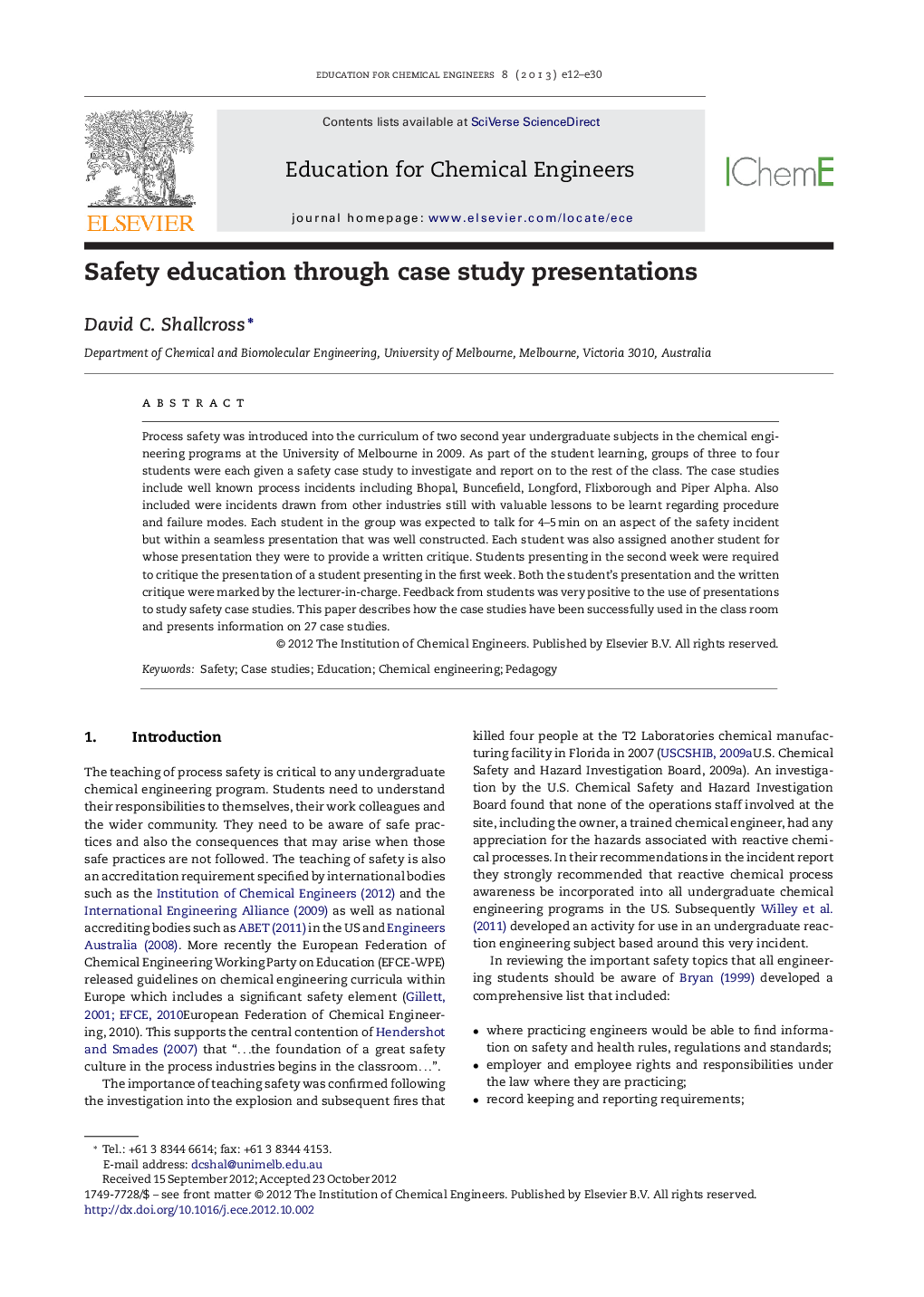| Article ID | Journal | Published Year | Pages | File Type |
|---|---|---|---|---|
| 178529 | Education for Chemical Engineers | 2013 | 19 Pages |
Process safety was introduced into the curriculum of two second year undergraduate subjects in the chemical engineering programs at the University of Melbourne in 2009. As part of the student learning, groups of three to four students were each given a safety case study to investigate and report on to the rest of the class. The case studies include well known process incidents including Bhopal, Buncefield, Longford, Flixborough and Piper Alpha. Also included were incidents drawn from other industries still with valuable lessons to be learnt regarding procedure and failure modes. Each student in the group was expected to talk for 4–5 min on an aspect of the safety incident but within a seamless presentation that was well constructed. Each student was also assigned another student for whose presentation they were to provide a written critique. Students presenting in the second week were required to critique the presentation of a student presenting in the first week. Both the student's presentation and the written critique were marked by the lecturer-in-charge. Feedback from students was very positive to the use of presentations to study safety case studies. This paper describes how the case studies have been successfully used in the class room and presents information on 27 case studies.
► Undergraduate students were required to research and present a safety case study. ► 27 case studies are presented covering a range of key areas. ► Students received feedback from peers who were required to critique others. ► Student feedback was very positive for this method of learning.
